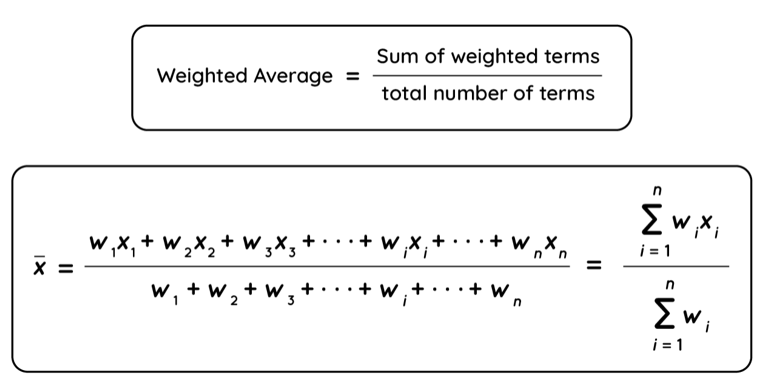About Weighted Average
A weighted average is an average in which each of the quantities that need to be averaged is given a weight. On average, this weighting aids us in assessing the relative relevance of each quantity. Because all of the numbers in the set of data are given the same weights, a weighted average can be deemed more accurate than a simple average.
When there are several elements to consider and assess, the weighted average, also known as the weighted mean, can help you make a decision. The weighted average is determined using a mathematical formula after each of the elements is given some weights based on their importance. Each of the constituent quantities is given a set weight in the weighted average. The weights are merely numbers expressed in percentages, decimals, or integers and have no physical units. The sum of the product of weights and quantities divided by the sum of weights is the weighted average formula.
Weighted Average=∑ (Weights×Quantities) / ∑ Weights
Definition of Weighted Average
The weighted average is used when some quantities are more essential than others and do not contribute equally to the final result, hence multiplying them to a coefficient is used. When weight is added to it, it is a straightforward technique of calculating an average value between two or more quantities. For example, a student may discover that the results of an exam are two times more important than the results of a quiz. The weighted average method is what it's called.
